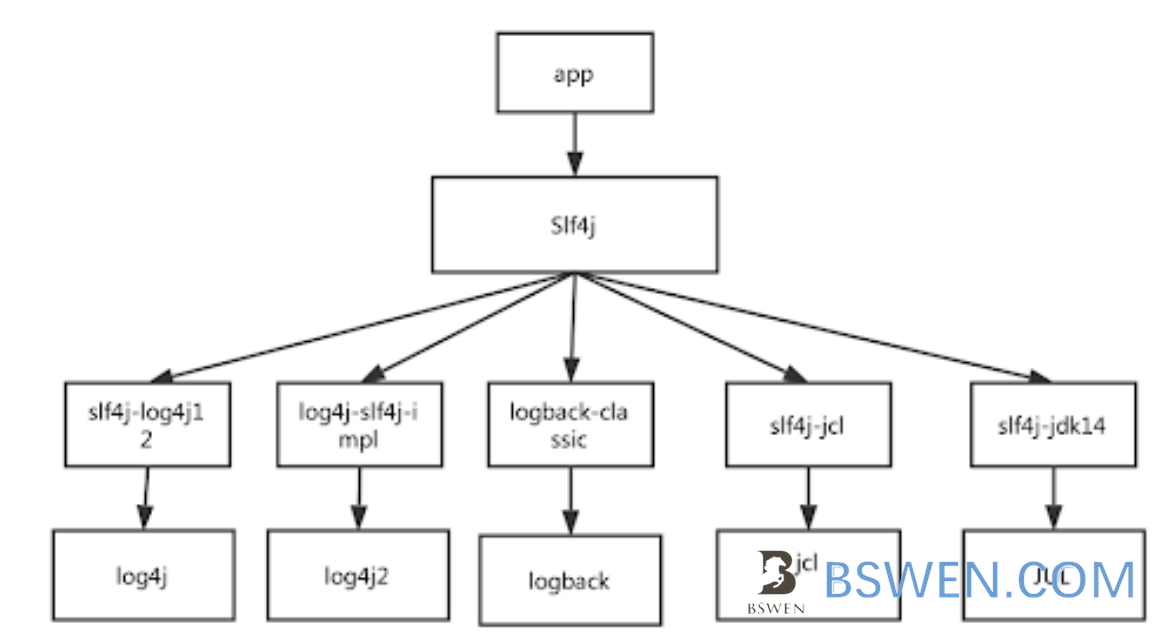How to resolve Failed to load class org.slf4j.impl.StaticLoggerBinder problem
Problem
When we run a Java application, sometimes, we get this error or warning message:
SLF4J: Failed to load class "org.slf4j.impl.StaticLoggerBinder".SLF4J: Defaulting to no-operation (NOP) logger implementationSLF4J: See http://www.slf4j.org/codes.html#StaticLoggerBinder for further details.14:58:59: Task execution finished 'Hello1.main()'.The core error is:
Failed to load class "org.slf4j.impl.StaticLoggerBinder".Why does this error happen?
Environment
- JDK 8
- Gradle 6.x
Our build.gradle is as follows:
plugins { id 'java'}
group 'org.example'version '1.0-SNAPSHOT'
sourceCompatibility = 1.8
dependencies { implementation 'io.codearte.jfairy:jfairy:0.5.9'}Reason
There are no log implementation libraries in your classpath, so SLF4J cannot use a specific logger to print logs. It can only use the default no-operation (NOP) logger.
According to StackOverflow, the reason is:
Failed to load class org.slf4j.impl.StaticLoggerBinder
This warning message is reported when the
org.slf4j.impl.StaticLoggerBinderclass could not be loaded into memory. This happens when no appropriate SLF4J binding could be found on the classpath. Placing one (and only one) ofslf4j-nop.jar,slf4j-simple.jar,slf4j-log4j12.jar,slf4j-jdk14.jar, orlogback-classic.jaron the classpath should resolve the problem.Note that SLF4J versions 2.0.x and later use the
ServiceLoadermechanism. Backends such as Logback 1.3 and later, which target SLF4J 2.x, do not ship withorg.slf4j.impl.StaticLoggerBinder. If you place a logging backend that targets SLF4J 2.0.x, you needslf4j-api-2.x.jaron the classpath. See also the relevant FAQ entry.Since SLF4J version 1.6, in the absence of a binding, SLF4J will default to a no-operation (NOP) logger implementation.
If you are responsible for packaging an application and do not care about logging, then placing
slf4j-nop.jaron the classpath of your application will get rid of this warning message. Note that embedded components such as libraries or frameworks should not declare a dependency on any SLF4J binding but only depend onslf4j-api. When a library declares a compile-time dependency on an SLF4J binding, it imposes that binding on the end-user, thus negating SLF4J’s purpose.
SLF4J’s architecture is as follows:

The key solution to this problem is to tell SLF4J which logger to use.
Solution
We can add the logger to SLF4J as follows:
Change your build.gradle:
plugins { id 'java'}
group 'org.example'version '1.0-SNAPSHOT'
sourceCompatibility = 1.8
dependencies { implementation 'io.codearte.jfairy:jfairy:0.5.9' implementation 'org.slf4j:slf4j-simple:1.7.30'}The most important line is:
implementation 'org.slf4j:slf4j-simple:1.7.30'The
slf4j-simpleis a simple implementation ofLoggerthat sends all enabled log messages, for all defined loggers, to the console (System.err). The following system properties are supported to configure the behavior of this logger.
Run the app again, and the error messages will disappear. It works!
Summary
In this post, we explored how to resolve the “Failed to load class org.slf4j.impl.StaticLoggerBinder” error in Java applications. The key takeaway is that SLF4J requires a binding to a specific logging implementation (e.g., Logback, Log4j, or slf4j-simple) to function properly. By adding the appropriate dependency to your build.gradle file, you can ensure that SLF4J has the necessary logger implementation to avoid the NOP logger fallback. This solution is straightforward and ensures your application logs are handled correctly.
Final Words + More Resources
My intention with this article was to help others share my knowledge and experience. If you want to contact me, you can contact by email: Email me
Here are also the most important links from this article along with some further resources that will help you in this scope:
Oh, and if you found these resources useful, don’t forget to support me by starring the repo on GitHub!